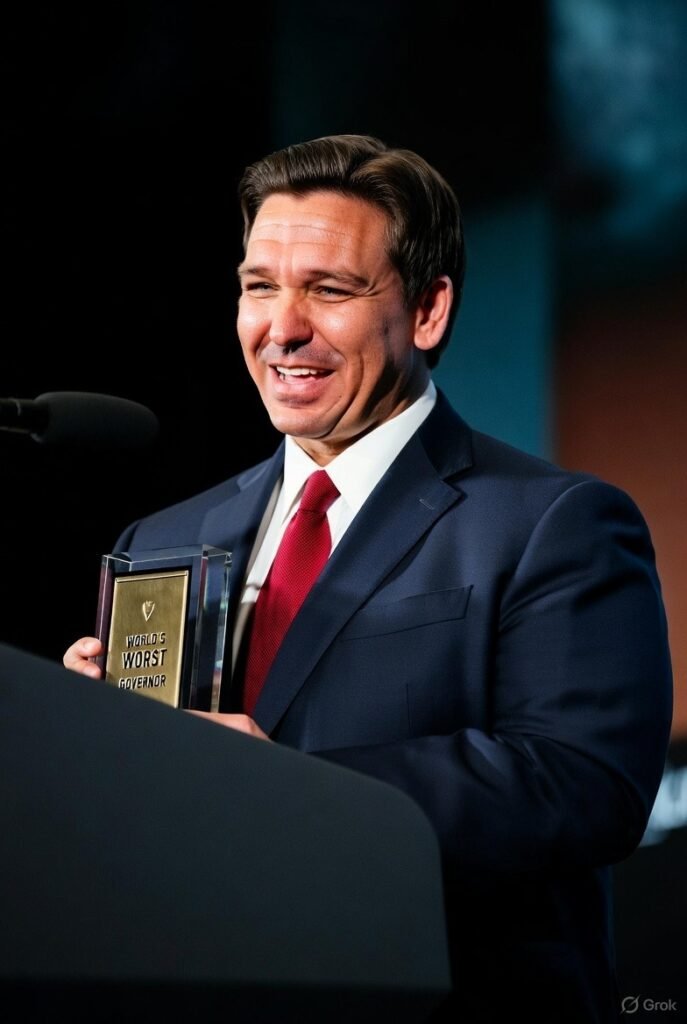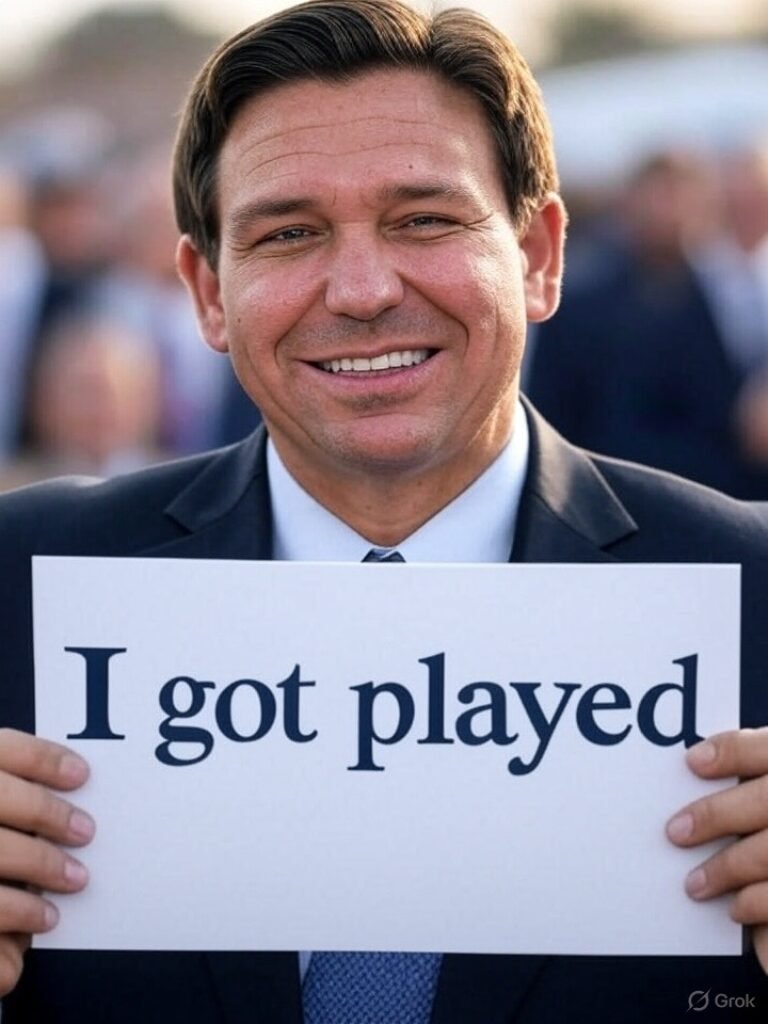Rise Within the Republican Party
Ron DeSantis’ ascent in the Republican Party is marked by strategic decisions and timely endorsements that solidified his status as a prominent political figure. Beginning his political career in the U.S. House of Representatives after winning a special election in 2013, DeSantis quickly established himself as a staunch conservative, gaining attention for his unwavering support of traditional Republican values. His representation of Florida’s 6th district allowed him to champion legislation that aligned closely with the party’s core ideologies, particularly regarding fiscal responsibility and limited government.
One of the pivotal moments in DeSantis’ career occurred during the 2016 presidential election cycle. He emerged as a vocal defender of then-candidate Donald Trump, which not only distinguished him from his peers but also earned him a significant following within the party. His endorsement of Trump garnered him crucial support from the party’s base, positioning him favorably when he launched his gubernatorial campaign in 2018. Backed by influential figures in the party, including prominent donors and operatives, DeSantis was able to leverage his alignment with Trump to win the primary election decisively.
As Governor of Florida, DeSantis quickly became known for his aggressive policy initiatives that resonated strongly with Republican voters. His approach to education, particularly with the implementation of school choice and reform initiatives, illustrated his commitment to conservative principles. Additionally, DeSantis gained widespread recognition for his handling of crises, such as natural disasters and the COVID-19 pandemic, further solidifying his image as a decisive leader. However, the very policies and alliances that catapulted him to prominence also laid the groundwork for subsequent controversies that would ultimately challenge his position within the party.
Controversial Statements and Actions

Ron DeSantis, the Governor of Florida, has been a figure of considerable interest, particularly regarding his remarks and actions which have often stirred controversy. A pivotal instance occurred when he made statements regarding racism and slavery that garnered widespread criticism. His assertion that discussions surrounding these topics could be framed as divisive rather than educational sparked outrage among various groups, including educators, historians, and civil rights advocates. Many perceived his comments as an attempt to minimize the historical significance of racism and the impact of slavery, thus leading to questions about his understanding of these sensitive issues.
Such assertions have not only affected public perceptions of DeSantis but also his standing within the Republican Party. While some members initially supported his narratives, a growing faction within the party expressed discomfort with his approach, worried that his remarks could alienate key voter demographics. This division became particularly evident during critical political debates, where his opponents seized the opportunity to challenge his credibility on matters of social justice, choosing to frame him as out of touch with contemporary issues.
The reactions from various communities have varied widely. Discourse within the African American community, for instance, has highlighted feelings of betrayal and frustration, as individuals felt that DeSantis’ comments disrespectfully dismissed the ongoing struggles against systemic racism. Additionally, educational organizations condemned DeSantis’ remarks, arguing that they could influence policy decisions that might affect curriculum development in Florida schools. The implications of his statements continue to resonate, contributing to a narrative that complicates his political future and the legacy he aims to build.
The Book Ban Debacle

Ron DeSantis’ administration made headlines when it initiated an aggressive campaign to ban certain books from Florida schools, a decision that aimed to reshape the educational landscape in line with specific ideological beliefs. The primary objective behind this book ban was purportedly to safeguard students from materials considered inappropriate or ideologically objectionable. However, critics argued that this move was an affront to intellectual freedom and a dangerous precedent for censorship in education. By targeting literature that addressed issues such as race, gender, and sexuality, the administration sought to restrict diverse perspectives, raising concerns among educators, parents, and civil rights advocates.
The backlash from both the public and political spheres was swift and intense. Numerous protests erupted across the state, with advocacy groups condemning the ban as an attack on free speech and a violation of educators’ rights to teach comprehensively. Prominent figures, including educators and students, voiced their opposition, emphasizing that exposure to a wide array of ideas is critical for cultivating critical thinking and empathy among students. The political fallout was significant, with DeSantis facing challenges not just from the opposition party, but also from within his own ranks as moderate voices questioned the implications of such censorship.
As the situation evolved, DeSantis’ administration ultimately reversed certain aspects of the book ban, an action interpreted by many as a response to plummeting approval ratings among Floridians. The swift public reaction highlighted a broader concern regarding the implications of such bans on educational integrity and the role of schools as environments fostering diverse thought. The controversy surrounding the book ban reflected deeper challenges in balancing educational policy with the ideals of freedom and inclusivity, ultimately marking a turning point in DeSantis’ political journey. The incident serves as a cautionary tale for future governance, illustrating the complexities inherent in educational policy and its profound effects on political capital.
Confrontation with Disney

In recent years, Ron DeSantis’s confrontations with Disney, one of Florida’s most significant employers and cultural icons, have captured considerable attention. This conflict began when DeSantis labeled the entertainment giant as ‘woke’, a term often used to describe perceived progressive ideologies. This statement was part of a broader political strategy aimed at galvanizing his base among conservatives who are increasingly critical of corporations perceived to engage in social justice advocacy.
The clash was triggered by Disney’s opposition to certain legislative measures in Florida, including those addressing education and LGBTQ+ rights. DeSantis’s response to Disney’s stance was aggressive, leading to drastic legislative measures that aimed to diminish the company’s special status regarding self-governance in its theme park territory. This contentious situation unfolded in a politically charged environment where the notion of ‘wokeness’ resonated deeply with a significant portion of the electorate.
As a result of his aggressive tactics against Disney, DeSantis aimed to frame himself as a staunch defender of traditional values, seeking to distinguish himself from opponents who he perceived to be too accommodating to corporate interests. However, this confrontation proved to be a double-edged sword. While it bolstered his support within certain conservative circles, it also raised questions among moderate Republican voters and independents who viewed the attack on a prominent employer as detrimental to Florida’s economic landscape.
Furthermore, public opinion polls indicated a complicated response to DeSantis’s strategy. Although he succeeded in rallying a portion of the Republican base, his overall popularity began to wane among Floridians who prioritized economic stability and job growth over ideological squabbles. This confrontation with Disney, therefore, not only reflected DeSantis’s political maneuvering but also revealed the potential perils of alienating major stakeholders in the state’s economy.
Failed Presidential Campaign

Ron DeSantis embarked on a highly anticipated presidential campaign, investing considerable resources and time in an effort to secure the Republican nomination. Despite entering the race with a robust political resume, buoyed by his governorship of Florida, his campaign faced numerous obstacles that ultimately led to its downfall. One notable aspect of this campaign was his heavy focus on Iowa, a pivotal state in the early primaries. DeSantis allocated significant time and effort to engage with Iowa voters, hoping to establish a strong foothold in this critical caucus state. However, his strategy did not yield the expected dividends.
As the primary season progressed, DeSantis encountered increasing difficulties in garnering support, culminating in a lack of victories. Despite being a prominent figure in the Republican Party, his campaign struggled to resonate with the electorate. The emergence of Nikki Haley, who successfully captured the attention of voters and garnered key endorsements, proved particularly detrimental to DeSantis’s prospects. Self-inflicted campaign blunders, such as inconsistent messaging and controversial statements, further eroded his standing within the party.
These missteps not only alienated potential supporters but also raised questions about DeSantis’s viability as a candidate. His inability to garner significant traction against Haley ultimately marked a turning point in his campaign. The series of disappointing results in the early primaries underscored a broader narrative of stagnation and decline. Consequently, the failures of his presidential campaign significantly diminished his political capital, revealing the challenges he faced in navigating the complexities of a highly competitive political landscape. This decline raises important questions about the future of his political career.
Impact of Trump and Loyalty Issues
Ron DeSantis, the Governor of Florida, initially positioned himself as a staunch ally of former President Donald Trump. This alignment was notably beneficial for DeSantis, allowing him to harness the power of Trump’s loyal base while positioning himself within the influential circles of the Republican Party. His early support for Trump during the 2016 election and his adoption of Trump’s politically aggressive style contributed to his rise in Florida politics. However, as the political landscape evolved, the dynamics of this relationship began to shift dramatically.
As Trump faced various legal challenges and scrutiny, DeSantis attempted to leverage these circumstances to bolster his own political capital. This strategy, however, proved counterproductive. Rather than strengthening his position, DeSantis’ efforts to distance himself from Trump while simultaneously trying to capitalize on the former president’s challenges led to perceptions of disloyalty among Trump’s supporters. This perception was further exacerbated by Trump’s apparent shift away from supporting DeSantis, which alienated many of the governor’s core constituents.
The fracture in the relationship between DeSantis and Trump became increasingly evident as the 2024 presidential primaries approached. Trump’s public criticisms of DeSantis, coupled with the former president’s loyal base rallying against him, illustrated how the governor’s maneuvering had backfired. Instead of emerging as a formidable candidate in his own right, DeSantis began to be viewed as someone who could not fully reconcile his ambitions with the expectations of the Trump faction within the Republican Party.
This rift underscores the complexities of political loyalty, particularly within a party heavily influenced by a singular figure like Trump. The impact of this disconnection has shaped DeSantis’ trajectory, leading to questions about his future prospects and viability as a candidate in an increasingly polarized political environment.
Lack of Accomplishments and Controversies During Governorship

Ron DeSantis, as the Governor of Florida, has been at the center of several controversies that have significantly influenced public perception of his leadership. Despite his initial rise to prominence, his term has been characterized by a series of questionable decisions and allegations of mismanagement. One of the most significant issues has been the handling of the COVID-19 pandemic. Critics argue that DeSantis’s administration has exhibited a lack of transparency, particularly in the reporting of COVID-19 data. This alleged mishandling not only raised public concern but also drew attention from national media outlets, further amplifying scrutiny of his leadership.
In addition to the COVID-19 data controversies, DeSantis’s policies have sparked significant debate, particularly regarding his approaches to public health measures. His reluctance to implement mask mandates and vaccine requirements has been perceived by many as a stance prioritizing personal liberty over public safety. This approach earned him the support of some constituents who value individual rights, but it simultaneously alienated others who felt that public health should take precedence during a crisis.
Moreover, investigations into DeSantis’s dealings, both in terms of political appointments and funding allocations, have surfaced. Allegations of cronyism and favoritism have painted a picture of a governance style that some observers argue is less focused on accountability and more on political maneuvering. These perceived failures, compounded by a growing sense of dissatisfaction among the electorate, have contributed to a declining approval rating. The lack of substantial accomplishments during his tenure, coupled with these various controversies, underlines the challenges that DeSantis faces as he navigates the complex landscape of Florida politics and public opinion.
Post-Campaign Phase and Current Activities
Following the conclusion of his presidential campaign, Ron DeSantis has embarked on a journey that marks a significant transition in his political career. The aftermath of his bid for the presidency has been characterized by a reevaluation of his public persona and political ambitions. DeSantis’ post-campaign phase has seen him actively engaging with various media platforms to maintain visibility, yet his tone suggests a departure from the intense political rhetoric that defined his run.
In the wake of his campaign, DeSantis has reoriented his focus toward an online presence that emphasizes commentary, rather than political progression. He has utilized social media to communicate his perspectives on current events, aiming to appeal to both his supporters and a broader audience. This shift indicates a strategic pivot towards a role that encompasses not only political discourse but also educational insights. His online activities reflect an individual seeking relevance in a landscape that increasingly demands intellectual contributions over mere political ambitions.
Moreover, DeSantis’ current activities now appear to align more closely with academic engagements rather than traditional political appearances. His participation in various forums, podcasts, and panel discussions emphasizes a shift toward thought leadership. He often addresses topics that resonate with a more scholarly audience, such as governance, state policy, and political theory. This new direction reveals a desire to contribute to public discourse in a style that resembles commentary rather than a straightforward pursuit of political office.
Overall, Ron DeSantis’ actions following his campaign illustrate a significant departure from his previous hardline political stance. The shift towards a scholarly and commentary-driven role suggests a recalibration of his image and influence within the political sphere, marking a new chapter in his career. Whether this transition leads to a more sustained relevance or a permanent withdrawal from the political arena remains to be seen.
Failures in Rebuilding Political Capital
Ron DeSantis, once considered a prominent figure within the Republican Party, has faced significant challenges in his endeavors to rebuild political capital following his unsuccessful presidential bid. His attempts to regain traction have primarily revolved around reestablishing connections with former President Donald Trump and repositioning himself within the evolving dynamics of the party. Despite these efforts, DeSantis’s strategy appears to have faltered.
One of the key elements in DeSantis’ approach has been his focus on aligning himself with Trump’s base. However, this alignment has been met with mixed reactions from party members and voters. While some constituents still endorse Trump’s policies and persona, many are wary of DeSantis’s perceived opportunism, questioning the authenticity of his allegiance. This skepticism has hindered DeSantis’s ability to solidify his standing among the increasingly fractured party membership, complicating his attempts to create a strong political brand.
Additionally, DeSantis has seen limited success in his efforts to address his political image issues. Amid accusations of ineffective governance and divisive rhetoric, his responses have often been seen as insufficient or poorly timed. Such perceptions have exacerbated his challenges in garnering broader support within the party. The shifts within Republican circles, notably towards more extreme and populist candidates, have also further alienated him from traditional party supporters who may have initially backed his initiatives.
The culmination of these failures indicates not only a shift in DeSantis’s political strategies but also highlights the broader transformation within the Republican Party itself. As the party evolves, so too must its leaders, and DeSantis’s current trajectory indicates a growing disconnect that may prove difficult to overcome. This ongoing struggle reflects the complexities of maintaining relevance in a party that is increasingly defined by its more radical elements.
The Conclusion of a Political Career
The political trajectory of Ron DeSantis, once celebrated as a rising star within the Republican Party, has declined significantly in recent months. A critical examination reveals several factors that have contributed to the unraveling of his political career. Among these, strategic missteps in policy decisions and challenges in navigating the complex landscape of American politics stand out as pivotal moments in DeSantis’ downward spiral. His previous appeal as a decisive leader was diminished by controversies surrounding his approach to various issues, which alienated key voter demographics.
Further complicating DeSantis’ situation is the broader context of Republican politics. The shifting attitudes within the party might signal a departure from traditional endorsements and methods of campaigning, as voter bases evolve and respond differently to emerging leaders. This has led many to question whether DeSantis can reintegrate into a party that is increasingly being defined by more radical elements, thus complicating his future political viability. His declining national prominence serves as a cautionary tale to emerging Republican politicians about the necessity to balance party loyalty and public opinion effectively.
As DeSantis’ political endeavors appear uncertain, reflections on his legacy invite scrutiny. Will he be remembered as a transformative leader who attempted to chart a new course for the party, or as a cautionary figure whose career dwindled amid internal conflict and public disapproval? While the conclusion of his immediate political ambitions seems apparent, the long-term implications of his actions and their resonance within the Republican Party remain to be fully understood. Questions linger about DeSantis’ future roles in party politics and the lasting impact of his tenure on upcoming generations of Republican leaders.





